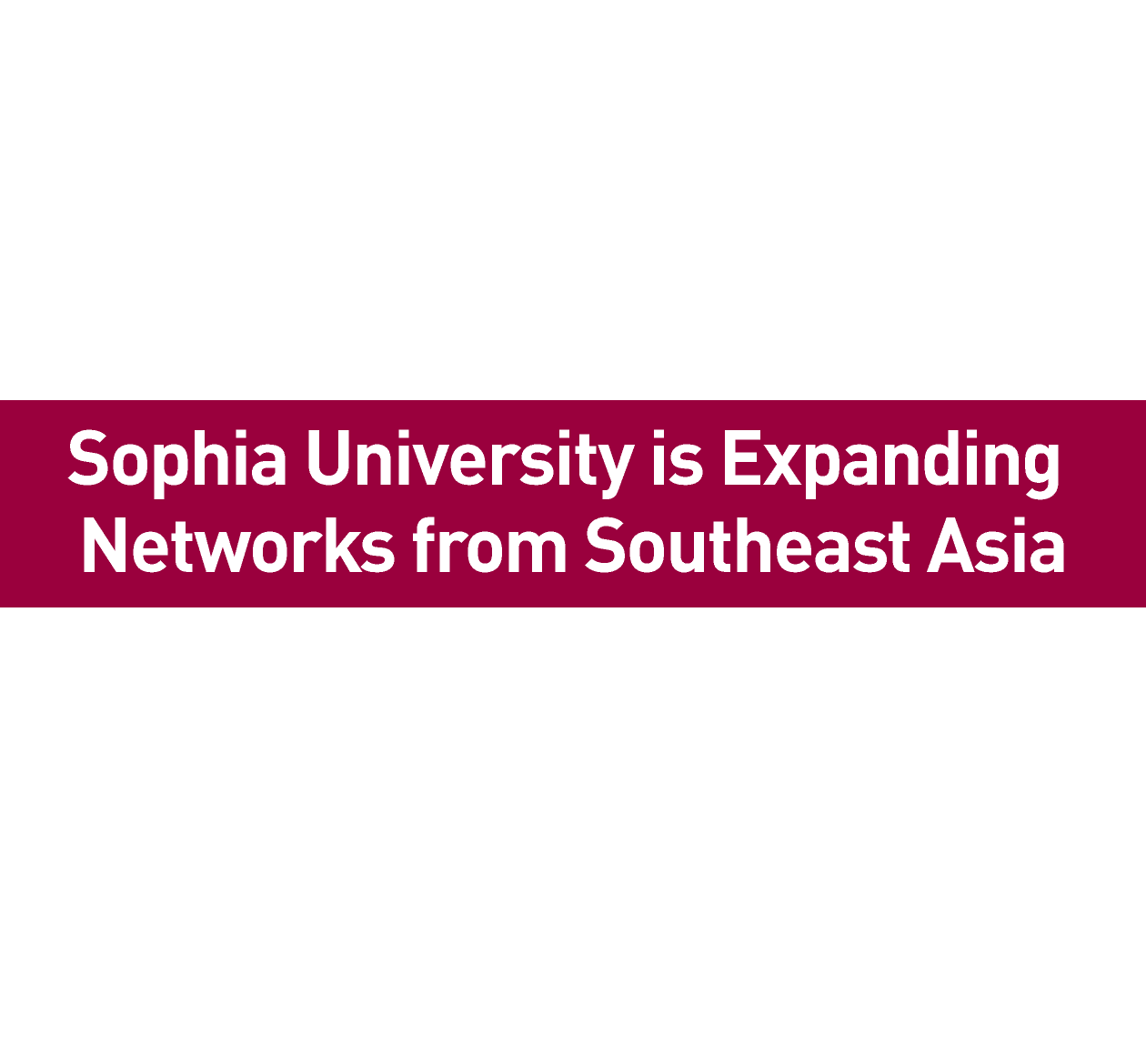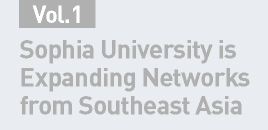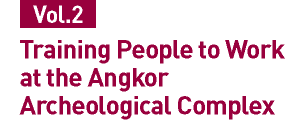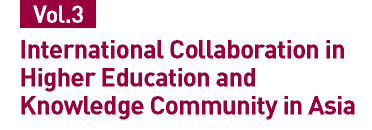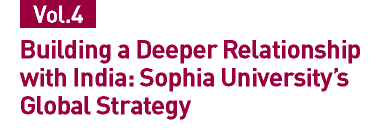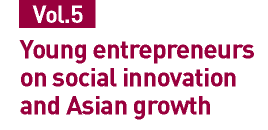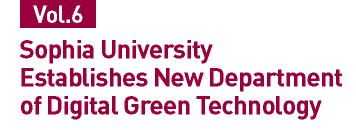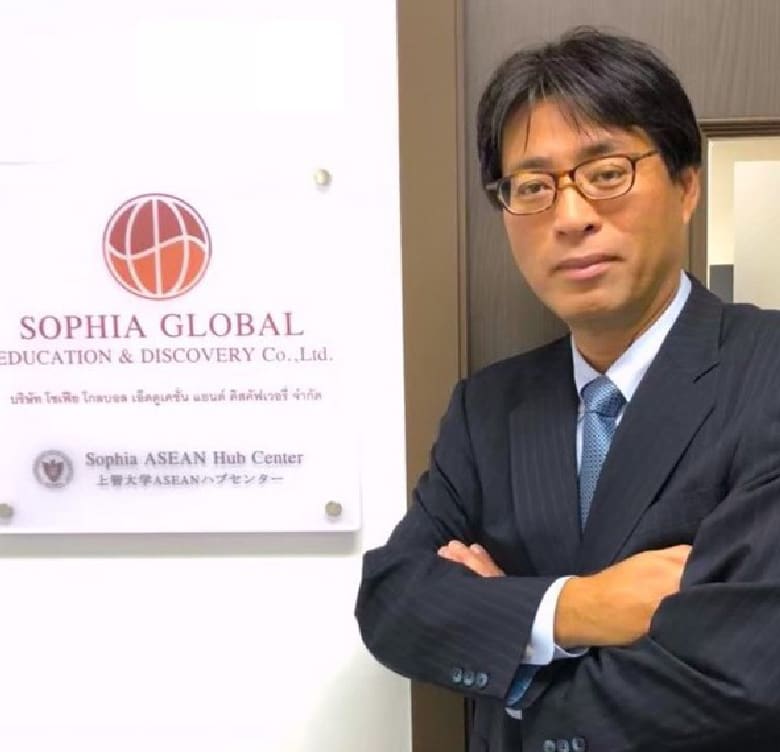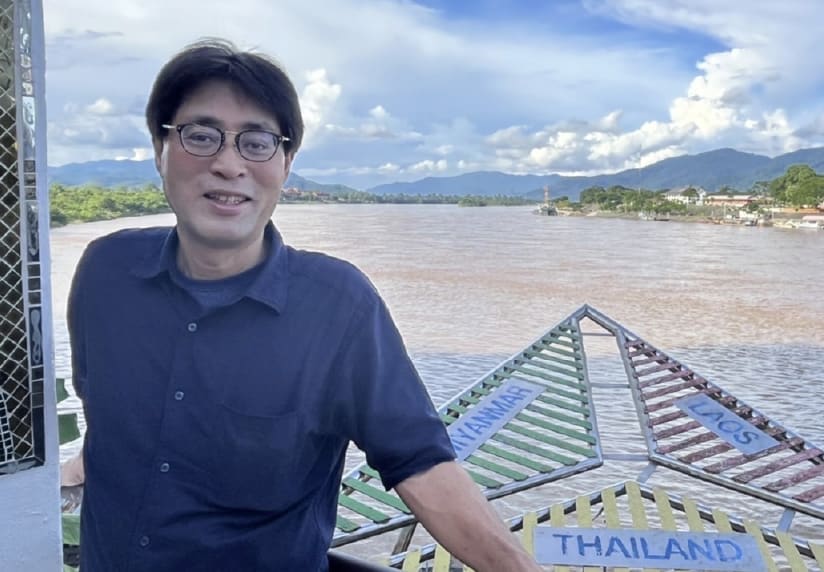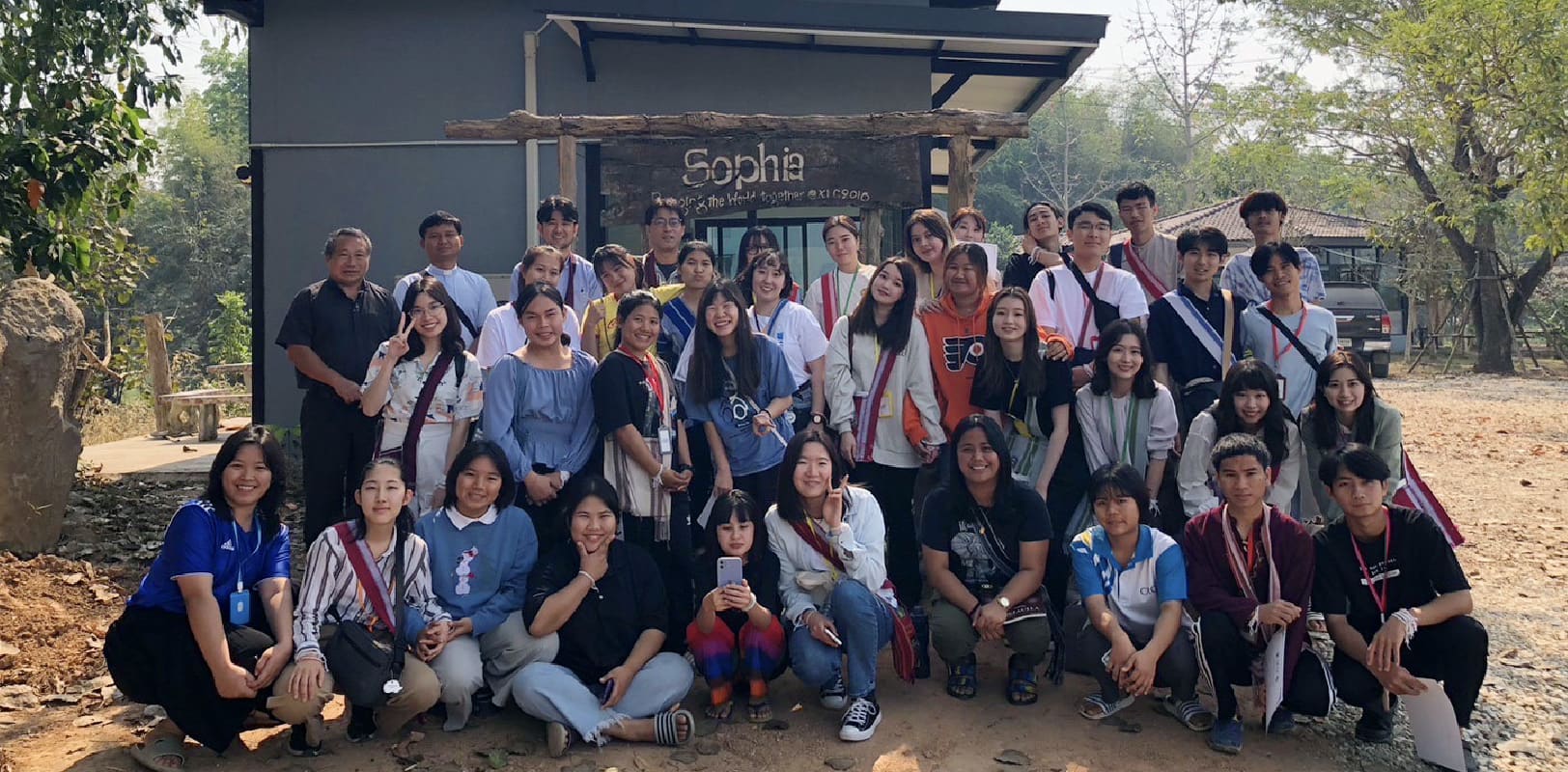Operating as a Company Opens Up
a Wider Range of Educational Activities
——To begin, please offer a little background about Sophia University.
HIROSATO; Sophia University was founded 110 years ago, in 1913, by three Jesuit priests. It is a comprehensive university with nine faculties and 29 departments at the undergraduate level, as well as 10 graduate schools with 28 programs at the post-graduate level. It offers language courses in 22 different languages Sophia enjoys the support of global networks cultivated since its establishment. It has alliances with 398 universities in 83 countries. Each year, over 1,000 Sophia students (about 12% of all students) study abroad and over 1,200 international students, (about 10% of students) study at Sophia, all on one campus. (Figures as of May 1, 2022)
——It’s reported that more than 50 Japanese universities have their overseas offices in Thailand. Given that Sophia has so many international students, it’s surprising that it is a relative latecomer to Thailand.
HIROSATO; Of course, we’ve had tie-ups with universities in Southeast Asia and accepted many international students from the region for a long time. However, it’s true that we’ve been quite passive. Our challenge now is to raise Sophia’s profile across the whole of Southeast Asia.
——In 2015 you set up the Sophia ASEAN Hub Center at Chulalongkorn University. Then in 2019, you reorganized this into a commercial venture focused on education and training. You also relocated the office from Chulalongkorn University to Asoke, in the heart of the Bangkok central business district.
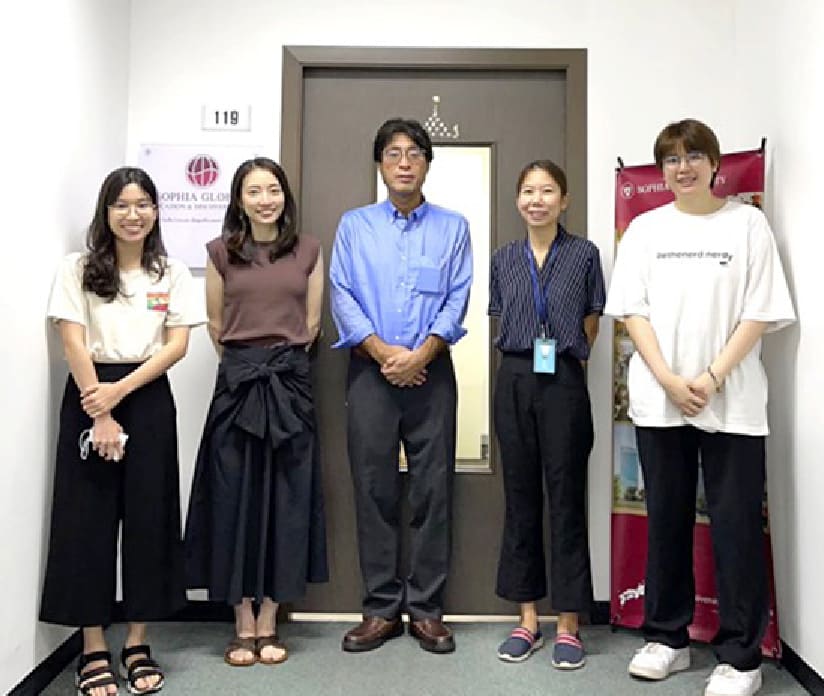
HIROSATO; The economic power of Southeast Asia is rising steadily. In Thailand, for example, many companies are already paying higher salaries at the general manager level than companies in Japan. The parents of today are highly motivated to educate their children, leading to a strong interest in overseas study programs. To encourage outstanding students and their parents to consider Sophia, we needed a local base. The launch of the ASEAN Community in 2015 was another factor. We decided to set up a hub for education, research and student exchanges to serve the whole Mekong region, headquartered in Bangkok, where there was already a concentration of international organizations and university networks, such as the Asia-Pacific regional offices of the U.N. agencies and other global bodies such as the Southeast Asian Ministers of Education Organization and the ASEAN University Network. The Asoke area is convenient because it is close to many of the overseas offices of other Japanese universities and agencies, including the Japan Foundation, Japan Society for the Promotion of Science, Japan International Cooperation Agency, Kyoto University, Meiji University and Osaka University, which makes it easy for us to interact. However, most universities outsource the recruitment of international students to specialist firms. At the same time, most of the universities that have waded into the local market do not have corporate status, so they are not legally permitted to make profits. Education and training programs cover a wide range of activities, not only recruitment of foreign students but also study tour programs and professional training. This means that unless it is possible to undertake for-profit activities, the scope of a university’s operations will be limited. We decided to set up as a private company so that we can engage in a wider variety of educational activities. This is the first attempt by a Japanese university to operate on a commercial basis in Thailand.
